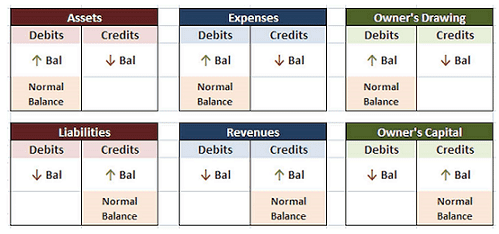
For instance, if you hold a degree in accounting or finance, you may be eligible for more advanced positions such as Senior Bookkeeper or Accounting Manager. Conversely, if you have completed a certification program in bookkeeping but lack a formal degree, you might consider titles like Junior Bookkeeper or Bookkeeping Assistant. They often serve as the bridge between the financial data and the stakeholders who rely on this information. Whether it’s explaining financial reports to management, liaising with vendors, or addressing employee payroll queries, clear and effective communication is crucial.
- Taking on leadership roles within your team can demonstrate your readiness for advancement.
- This common career trajectory allows for a progression toward more strategic financial positions.
- As they progress in their roles, general bookkeepers have the opportunity to develop their expertise and take on more responsibilities within the financial department.
- Discover the essential skills, qualifications, salaries, and career paths in bookkeeping with this comprehensive guide.
- A full charge bookkeeper has additional responsibilities beyond those of a general bookkeeper.
- Learn about the best certificate programs to prepare for bookkeeper or accounting clerk careers.
Industry-Specific Titles
They provide a more comprehensive suite of bookkeeping services, offering greater support in financial management and https://www.advantage-intec.co.jp/what-are-statements-of-financial-accounting/ decision-making. A general bookkeeper is responsible for handling financial transactions and postings for a company or individual. General bookkeepers are proficient in basic bookkeeping tasks and have a good understanding of financial software. They are often the first point of contact for financial matters and play a crucial role in maintaining financial stability within an organization.

Overview of Bookkeeping Roles

It encompasses the meticulous recording, tracking, and management of financial transactions, ensuring that every dollar is accounted for. As businesses grow and evolve, the demand for skilled bookkeepers has surged, leading to a diverse array of job titles and roles within this essential field. Another notable trend is the increasing importance of compliance and regulatory knowledge in bookkeeping roles. As businesses face more stringent financial regulations, titles such as “Compliance Accountant” and “Regulatory Reporting Specialist” have emerged. These positions require a deep understanding of financial laws and regulations, ensuring that organizations remain compliant while managing their financial records. Today, traditional titles like “bookkeeper” and “accountant” are being supplemented or replaced by more specialized roles.
- An Accountant Specialist, also known as an Accounting Specialist, is tasked with managing the payroll activities of a business or organization.
- In senior positions, professionals are responsible for overseeing the entire accounting department, developing financial strategies, and ensuring compliance with regulations.
- Our research-backed methods have helped people eliminate debt, increase savings, and create sustainable wealth.
- Employers typically invest more in the training of employees with higher-level titles, as they are seen as future leaders within the organization.
- A Director of Bookkeeping Services manages a team of bookkeepers and oversees all bookkeeping operations for a company or multiple clients.
- Accounting Clerks often work under the supervision of accountants or bookkeepers.
Accounting Software
Remote bookkeeping has become increasingly popular, allowing professionals to work from anywhere while providing services to clients across the globe. This flexibility not only benefits bookkeepers but also offers businesses access to a wider talent pool. By following these steps, you can position yourself effectively in the competitive bookkeeping job market and take significant strides toward achieving your career goals. Before diving into the job market, it’s essential to conduct a self-assessment to understand your strengths, weaknesses, and interests. This process will help you identify which bookkeeping job titles align with your career aspirations.
Ultimately, the bookkeeper’s responsibilities are to accurately record all day-to-day financial transactions of our company. An Accounting Coordinator is responsible for inputting employee payroll information on a weekly or monthly basis. An Accounting Coordinator also manages the contract filing systems and creates monthly financial statements. In some organizations, the Accounting Coordinator works across all departments to assist in creating annual plans.

The Property Accountant addresses the requirements needed to buy and sell real estate. Job responsibilities include crafting budgets, setting up escrows, and preparing statements. A Forensic Accountant uses the combination of investigative and accounting training to examine the financials of a business or an individual. Forensic Accountants conduct audits and create reports that are legally acceptable in court cases and legal action based on their findings, commonly for embezzlement or fraud cases. A Forensic Accountant may also be called upon to testify in court and prepare additional visual aids based net sales on their findings. As in most departments, the #2 person on the accounting team is typically a vice president.

Entry-Level Duties
By categorizing expenses and transactions, I ensure that all financial activities are properly recorded and organized. This helps job title for bookkeeper businesses analyze their spending patterns and make informed decisions. I also send invoices to clients and vendors, ensuring that all parties involved are aware of the payment obligations.